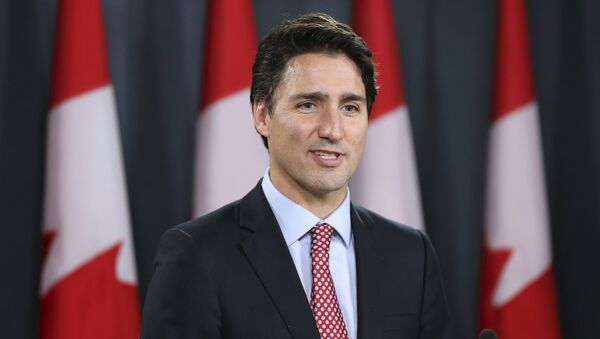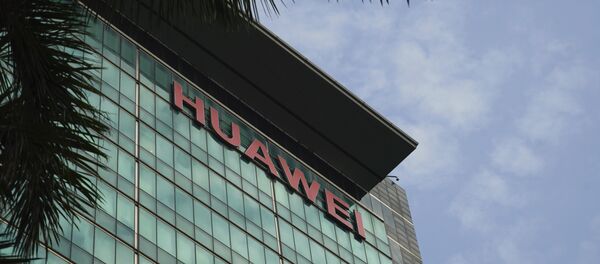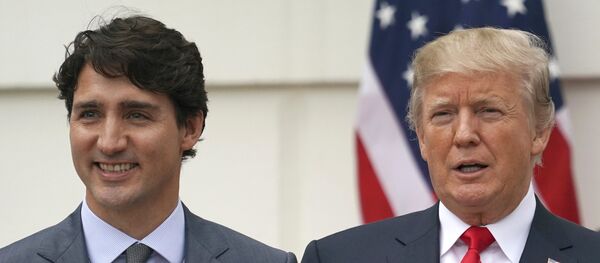Commenting on the arrest of Huawei's Meng Wanzhou by Canada, Beijing stated that it strongly opposed the introduction of any unilateral sanctions without the approval of the United Nations Security Council.
While Ottawa claimed that the move had no political motivation, the Chinese state media slammed the arrest of the global chief financial officer of Huawei, with Global Times writing, "Obviously, Washington is resorting to a despicable rogue's approach as it cannot stop Huawei's 5G advance in the market."
In its turn, China Daily voiced belief tha "one thing that is undoubtedly true and proven is the US is trying to do whatever it can to contain Huawei's expansion in the world, simply because the company is the point man for China's competitive technology companies."
Here are some instances where Canada seemingly followed Washington’s lead.
No Asylum for Snowden Helpers?
In March 2017, three families who helped shelter former US National Security Agency contractor Edward Snowden in Hong Kong after he leaked classified information on multiple US secret surveillance programmes in 2013, asked Canada for asylum.
READ MORE: Snowden's 'Guardian Angels' Face Retaliation in Hong Kong
Since their connection to Snowden, who is facing espionage charges in the US and may face life imprisonment or even the death penalty, was brought to light, they’ve been routinely questioned by authorities to find out what they know about the whistleblower.
Over a week ago, Robert Tibbo, a Canadian lawyer who provided legal advice to Snowden and represented the group, said that he was being persecuted and forced out of Hong Kong for helping the whistleblower.
The group filed an asylum request to Canada several months ago, but despite the urgency facing their cases, Canada’s immigration minister, Ahmed Hussen, hasn't expedited the asylum claims yet, leaving the families at the whim of a process that could take years.
"The Canadian Government wrote to us, and said that they will be processing the Snowden Guardian Angels Refugee claims in a chronological order. And that means, in 52 months. Almost 4 and a half years", Tibbo told Sputnik in January 2018.
Even though Canadian Prime Minister Justin Trudeau once tweeted that the country would welcome anyone facing persecution, this doesn't seem to be relevant when it comes to Snowden.
To those fleeing persecution, terror & war, Canadians will welcome you, regardless of your faith. Diversity is our strength #WelcomeToCanada
— Justin Trudeau (@JustinTrudeau) 28 января 2017 г.
Russia's Alleged Cyber Attacks
In early October 2018, the US Justice Department announced charges against seven alleged Russian military intelligence officials that it accused of hacking multiple doping agencies and international organisations around the globe.
READ MORE: Canada's Trudeau Announces $10.5-Billion Fiscal Stimulus to Compete With US
Shortly after the public announcement, Canada joined its neighbour in condemning Russia's “malicious cyber-operations”. Canada claimed that it had also been targeted by GRU operatives, who purportedly hacked the Canadian Centre for Ethics in Sport (CCES) and the World Anti-Doping Agency in Montreal in 2016 in wake of Russian athletes being banned from the Olympic Games in Brazil.
'Five Eyes' Wide Shut
They expressed concern that allowing Huawei into Canada’s 5G wireless infrastructure network could interfere with intelligence sharing between the Five Eyes allies and harm cross-border co-operation in telecommunications between American and Canadian firms.
After New Zealand joined Australia and the United States in banning Huawei's equipment last week, Canada is left in minority, with Washington pressuring its ally to steer clear of doing 5G business with the Chinese firm out of security concerns.
Magnitsky Act à la Canadienne
Back in October 2017, Canada passed its version of the US Magnitsky Act, which sanctioned Russians for alleged human rights violations.
READ MORE: Trump, Nieto, and Trudeau Sign US-Canada-Mexico Trade Deal Replacing NAFTA
In late 2012, the United States adopted the Magnitsky Act, which institutes travel bans and financial restrictions on Russian officials and other individuals believed to have been involved in the death of Russian lawyer Sergei Magnitsky.
The Hermitage Capital Management hedge fund lawyer was detained in Moscow in 2008 on charges of tax evasion and later died of heart failure while in prison.
Dude-plomacy
Trudeau had a powerful bromance with former US President Barack Obama, whom he once called his "sibling", which was filled with relentless jokes and friendly jibes, as well as largely converging views on issues such as climate change, the Trans Pacific Partnership trade deal, partnership in the Arctic, etc.
.@JustinTrudeau objects to "bromance" characterization with @POTUS: "I still think 'dudeplomacy' is more accurate." https://t.co/aA2d6nm36W
— ABC News Politics (@ABCPolitics) 29 июня 2016 г.
Apparently considering himself a mentor for young Trudeau, Obama gave him one last piece of advice as he was preparing to leave he office. The US president told the Canadian prime minister to take on a greater role in international affairs and to speak out when certain values are jeopardised.





